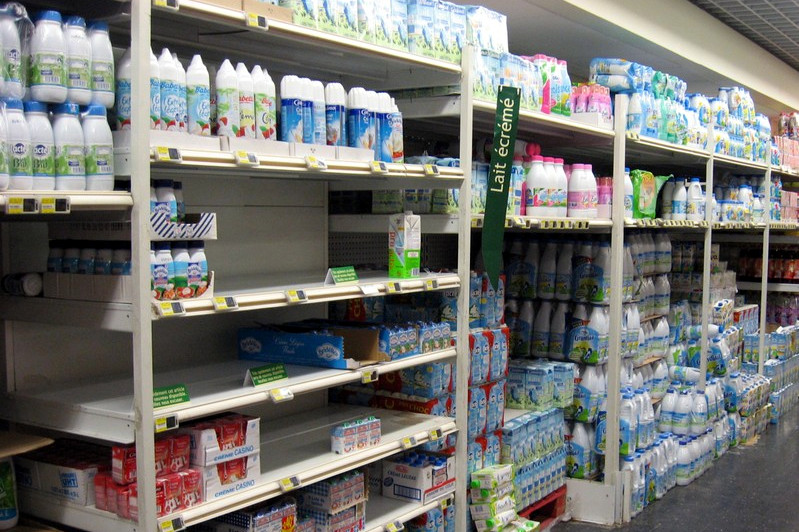Why do the French eat raw milk cheese but drink ultrapasteurized milk?
Not all cheeses in France are made with raw milk, but many are, including those aged less than the 60 days required to sell raw milk cheese in the US. Brie and Camembert, for example, are generally aged only 3-4 weeks.
But what’s interesting is that the vast majority of milk available for drinking in the French supermarket is ultrapasteurized (aka UHT milk) and sold in unrefrigerated bricks or liter bottles.

You’d think that a country comfortable with eating raw milk cheese would also prefer drinking their milk raw (lait cru), but you’d be wrong. Thus it’s ironic that the political fight to allow the sale of raw milk in the US focuses primarily on raw milk for drinking, not raw milk for cheese. It’s almost like something got lost in translation. Let’s not forget that it was a Frenchmen, Louis Pasteur, who started this whole “mess” in the first place. I kid.
How something is pasteurized (yes, there are different ways!) is of great importance to a cheesemaker, home- or otherwise, as ultrapasteurized milk is effectively dead from a cheesemaking perspective. It just won’t curdle. It’s basically cooked. This is compared to “regular” HTST pasteurized milk which does less damage by heating the milk to a lower temperature for a short time.
Even the Time Traveler’s Cheatsheet includes a description of pasteurization (though for unknown reasons it starts off the technology section, as opposed to health).

I learned in my most recent cheese class, Sheep Showdown, that not all cheesemakers look down on pasteurization. Our teacher, Michelle Buster, told us that “to pasteurize or not to pasteurize” is as much a question of taste and legality, as it is a question of economics (everything always is). For the local Italian and Spanish cheesemakers she imports from, pasteurizing their milk reduces the risk of a batch of cheese going bad or having an off-taste. Thus pasteurization actually helps to increase their yield, and thus their revenue. On the other hand, the pasteurization equipment is expensive, so some simply cannot afford to go that route.
So why do the French drink ultrapasteurized milk? Apparently, it has to do with refrigeration. Not only is it expensive to ensure that milk stays refrigerated from the processing plant to the grocery store, but the French are known for having rather small fridges at home. Thus several liter bottles (or boxes) of UHT milk can be stored much more easily in the pantry than in the refrigerator.
Interesting! (I’m depending on your blog to learn about cheese for now…thanks!)